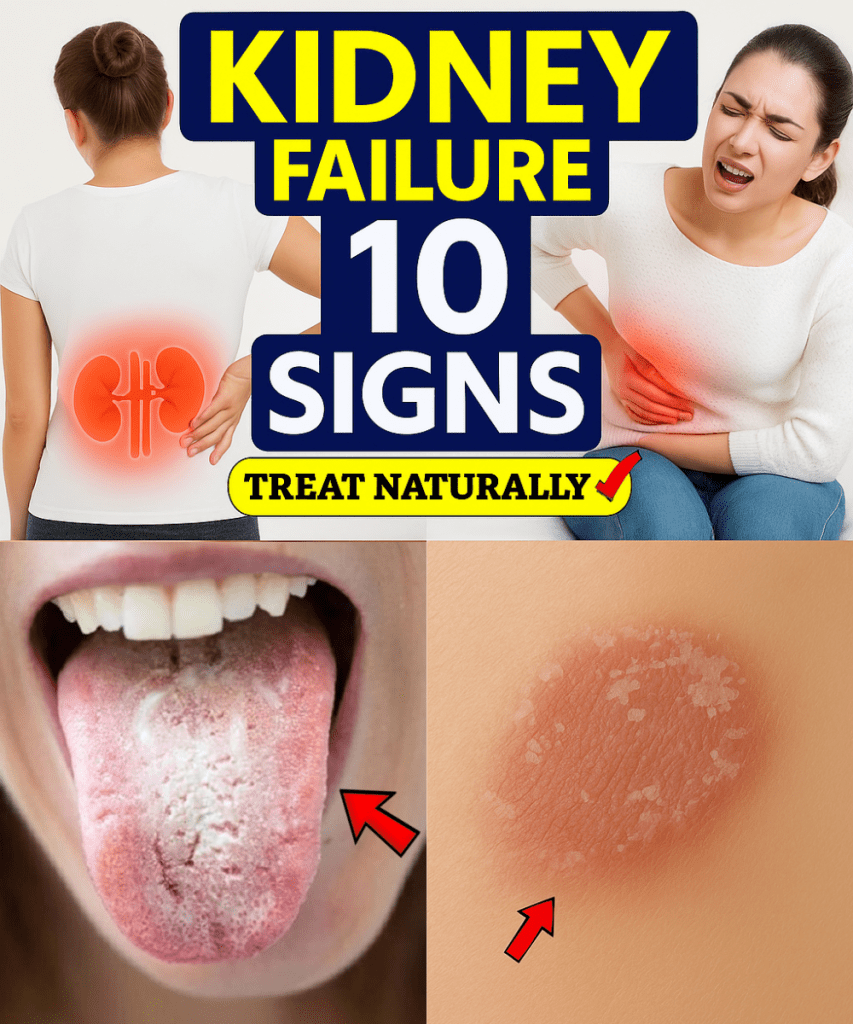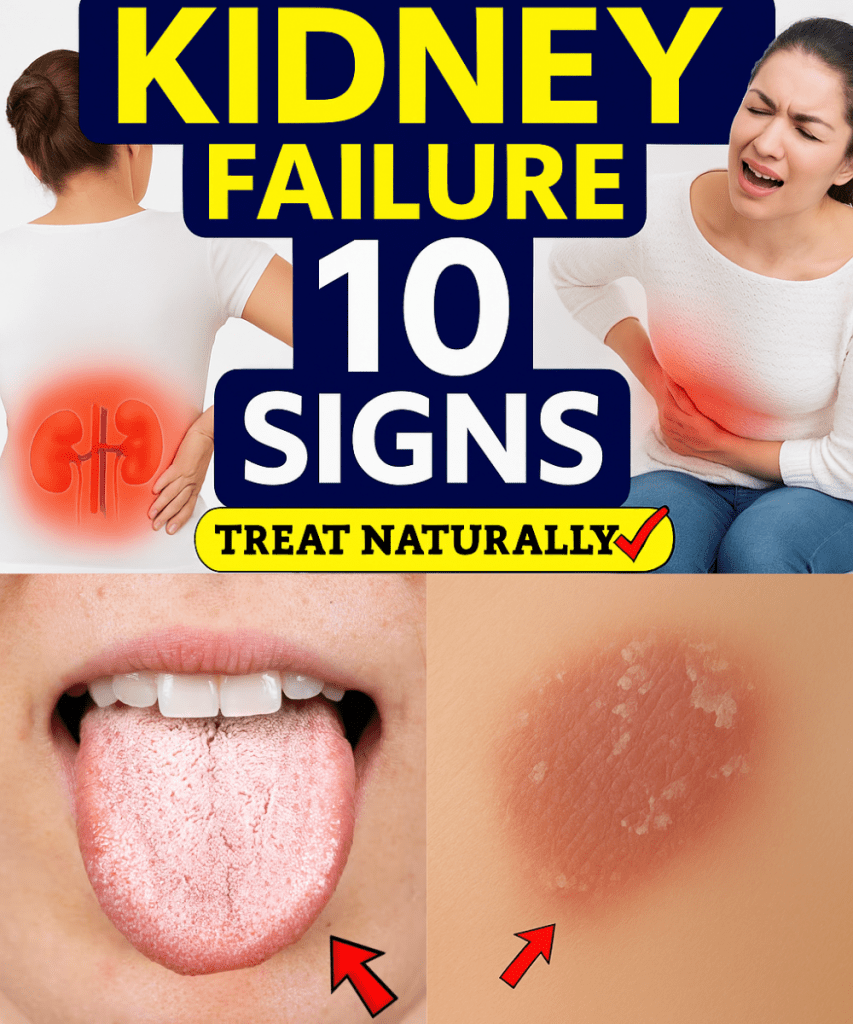Imagine the body’s most sophisticated filtering system quietly shutting down, day by day, without a shout or a scream. That’s the terrifying reality of chronic kidney disease (CKD), a condition that affects millions globally and often earns the chilling nickname: the “Silent Killer.” Your kidneys are unsung heroes, tiny powerhouses responsible for managing critical functions: filtering liters of blood, balancing essential electrolytes, regulating fluid levels, and producing hormones that control blood pressure and red blood cell production. They are vital to life itself.
The tragedy is that kidney failure rarely happens in a dramatic moment. Instead, it’s an insidious, gradual decline. Your body is incredibly resilient and has a remarkable ability to compensate for loss of function. This means that by the time you feel truly sick, your kidney function may have already dropped below 20%. This gap, between the quiet start of the problem and the loud health crisis, is where danger lurks. But here’s the crucial truth: your body is always sending signals. It’s giving you small, subtle warnings you might dismiss as just “getting older,” “being stressed,” or “needing more sleep.” These seemingly minor daily irritations are the early flags of a serious internal struggle.
In this deep dive, we are exposing the 13 early warning signs of kidney failure you might be overlooking every single day. Recognizing even two or three of these symptoms is not a cause for panic, but an urgent call to action. By reading this and understanding the mechanism behind each signal, you are empowering yourself with life saving knowledge that can lead to early detection, treatment, and a potentially reversed or slowed progression of kidney damage. Don’t let the silence fool you. Let’s listen to what your kidneys are trying to tell you.

🩸 The Toxin Backlog: Symptoms Caused by Waste Accumulation
When the kidneys struggle to filter blood, waste products like urea and creatinine build up, leading to a condition called uremia. This toxicity affects nearly every system in the body, manifesting in several easily overlooked physical and mental symptoms.
1. 😴 Persistent Fatigue and Unexplained Weakness
This is often the first and most dismissed sign. When your kidneys stop filtering waste properly, toxins circulate in the blood instead of being expelled. This systemic toxicity drags down your energy levels, leading to constant tiredness, extreme lethargy, and a feeling of heaviness. It’s fatigue that sleep doesn’t fix. Furthermore, failing kidneys produce less Erythropoietin (EPO), a hormone vital for making red blood cells. The resulting lack of red blood cells causes anemia, which further deprives your body and brain of necessary oxygen, compounding the feeling of weakness. If you find yourself constantly exhausted, it’s a major red flag that requires investigation beyond just checking your iron levels.
2. 🤢 Nausea, Vomiting, and Loss of Appetite
The buildup of waste products in the blood directly impacts the digestive system and the brain’s hunger center. This chemical imbalance often causes persistent nausea, intermittent bouts of vomiting, and a significant loss of appetite (anorexia). This isn’t just a fleeting stomach bug; it’s a symptom of toxins disrupting the body’s delicate internal chemistry. If you consistently feel ill after eating or have a sudden, lasting disinterest in food, this symptom can be strongly linked to uremia and declining kidney function.
3. 👅 Metallic Taste in Mouth and Ammonia Breath
As waste products accumulate, they can alter the chemistry of your saliva and breath. Kidney disease often causes a distinct metallic taste in the mouth, sometimes described as tasting like ammonia, due to the buildup of urea. This condition, known as uremic fetor, also gives breath an unpleasant, ammonia-like odor. Food may begin to taste different or unpleasant (aversion), contributing to the loss of appetite. This is one of the more unique symptoms and a key indicator of high toxin levels in the bloodstream.
4. 🧠 Poor Concentration and Brain Fog
High levels of toxins in the blood do not stop at the digestive system; they cross the blood brain barrier. Many people with kidney disease complain of persistent difficulty concentrating, memory lapses, and general confusion or brain fog. This is the brain struggling to function efficiently amidst a toxic environment. If your mental sharpness is declining without a clear cause like lack of sleep, it could be a sign your kidneys are no longer cleaning your blood effectively.
💧 The Fluid Crisis: Symptoms Related to Electrolyte and Fluid Imbalance
The kidneys are masters of fluid and electrolyte regulation. When they fail, this balance is lost, leading to excess fluid retention and critical mineral disruptions.
5. 🦵 Swelling (Edema) in Legs, Ankles, and Feet
The most visible sign of fluid imbalance is swelling (edema). When the kidneys lose their ability to excrete sodium and water properly, the fluid backs up into the body’s tissues, often pulled down by gravity to the lower limbs: the legs, ankles, and feet. Puffy, tight skin, especially at the end of the day, is a classic warning sign that your body is retaining excess fluid due to filtration failure. Pressing a finger into the swollen area and seeing an indentation linger is often a telltale sign of pitting edema.
6. 👁️ Puffy Eyes in the Morning
Another prominent location for edema is around the eyes, particularly upon waking. Waking up with swollen or puffy eyes (periorbital edema) may signal that the kidneys are leaking an excessive amount of protein into the urine, a condition called proteinuria. When protein (albumin) leaks out, the concentration of protein in the blood drops, reducing the pressure that keeps fluid within the vessels. This allows fluid to seep into surrounding tissues, and the delicate skin around the eyes is often the first place this becomes noticeable.
7. 🫁 Shortness of Breath (Dyspnea)
Kidney failure contributes to breathing issues in two major ways. First, the excess fluid retention mentioned earlier can build up in the lungs (pulmonary edema), making it hard to breathe and sometimes causing a persistent cough. Second, the anemia common in kidney disease means your blood can’t carry enough oxygen, leading to chronic shortness of breath and dizziness upon exertion. If breathing feels labored when you lie down or climb stairs, this urgent symptom needs immediate medical assessment.

🚽 The Urinary Indicators: Changes in Output and Appearance
Since the kidneys produce urine, any change in the frequency, volume, or appearance of urination is a direct and critical indicator of kidney distress.
8. 💦 Changes in Urination: Foamy or Bubbly Urine
Healthy urine should be a light straw color and relatively clear. Foamy or excessively bubbly urine is a classic sign of protein leakage (proteinuria). Just as shaking a bottle of water causes bubbles that disappear quickly, foamy urine suggests a high concentration of protein is present. This is a critical sign that the kidney filters (glomeruli) are damaged and allowing large protein molecules to escape from the blood into the urine.
9. 🌙 Frequent Night Urination (Nocturia)
If you are getting up more than once or twice a night to urinate, you may be experiencing nocturia. Early kidney damage can impair the kidneys’ ability to concentrate urine. As a result, you produce a higher volume of dilute urine, forcing you to wake up to empty your bladder repeatedly. This symptom often precedes reduced urine output and is one of the earliest signs of failing kidney concentrating ability.
10. 📉 Reduced Urine Output or Dark Color
As kidney function significantly declines, the overall volume of urine produced will often decrease. The kidneys simply can’t push out the required fluid. Conversely, urine may become abnormally dark or concentrated even when you drink enough water. Any drastic or prolonged change in your usual urine output is a high-priority warning sign that your fluid and waste excretion is compromised.
🌡️ The Hidden Links: Hormonal and Mineral Symptoms
Kidneys also act as an endocrine organ, producing hormones and regulating key minerals, meaning their failure results in systemic hormonal chaos.
11. ⬆️ High Blood Pressure (Hypertension)
Kidneys play a critical role in regulating blood pressure through the release of hormones (like renin) and by balancing salt and water. Damaged kidneys can’t manage this effectively, often leading to the onset or worsening of hypertension. This creates a deadly feedback loop: uncontrolled high blood pressure is both a cause and a consequence of kidney damage, further accelerating the decline in kidney function. Unexplained or persistent hypertension is always a kidney concern until proven otherwise.
12. 🦴 Muscle Cramps and Restless Legs
Kidney failure severely disrupts the balance of minerals and electrolytes in the body, specifically calcium and phosphorus. Low calcium and high phosphorus levels can directly affect muscle and nerve function, causing painful, persistent muscle cramps, twitching, or spasms. The uncomfortable, irresistible urge to move the legs, known as Restless Legs Syndrome (RLS), particularly at night, is also a highly common and early neurological sign of declining kidney health linked to these mineral imbalances.
13. 痒 Itchy, Dry Skin and Rashes
Healthy kidneys maintain the balance of minerals and nutrients, including clearing excess phosphorus. When they fail, the buildup of toxins and mineral imbalances (often high phosphorus) can cause the skin to become persistently itchy (pruritus), dry, or lead to the development of strange rashes. This relentless skin discomfort is more than simple dryness; it’s a dermatological manifestation of the internal waste buildup that often goes overlooked but is strongly linked to advanced kidney problems.
✅ Final, Life-Saving Takeaway
Kidney failure is not a lottery; it is often the direct result of uncontrolled chronic conditions like diabetes and high blood pressure. However, the symptoms are almost always manageable and the progression is often stoppable, if caught early.
If you recognize two or more of these signs, or if you belong to a high risk group (diabetics, hypertensives, those with a family history of kidney disease), please do not attempt to self-diagnose or wait for the symptoms to disappear. Your awareness is your best defense.
Consult a doctor immediately and specifically request a basic blood test (to check eGFR and creatinine) and a urine test (to check for protein/albumin). These two simple, inexpensive tests are the cornerstone of early kidney disease detection and can make a literal life-saving difference.
👉 Don’t ignore these subtle warning signs. Your kidneys work tirelessly every single day—protect them now before their silence becomes a crisis.









